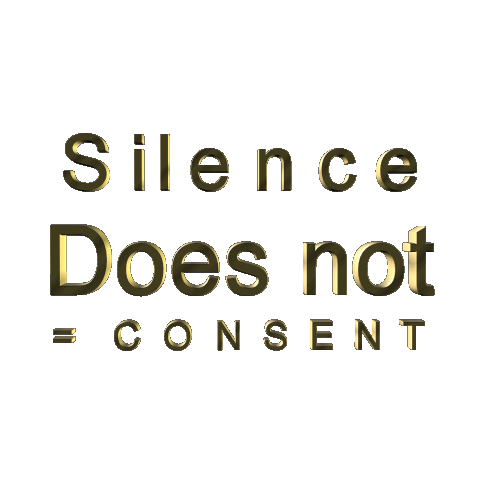Asking someone out is a normal yet nerve-racking experience. As a young person, you may not have developed sexual or romantic feelings for another individual before, and you may be uncertain of how to approach a person of interest. Asking someone out can become a big ordeal because you may begin to ask yourself questions such as “will they say yes?” or “what will other people think if they say no?” or “how do I even get the courage to go up and ask them in the first place?”. There is no need to panic; the following information will provide you with some guidance.

Preparing to Ask Someone Out
Having feelings for someone or having the urge to want to be with them sexually is a typical thing to experience, especially during adolescence. The transitions that the body and mind undergo can be overwhelming and can come with a lot of pressure. As a result, you may become more concerned with your appearance and the appearance of others, which can make asking someone out feel difficult. A key thing to remember is to display confidence. Consistently remind yourself that how you feel about yourself matters most, in order to contribute to a positive self-image. Try and make a conscious effort to not worry about what other people think of you, because at the end of the day, your own happiness is most important. Possessing confidence and self-esteem will ease the process of asking someone out.

Asking Out Someone New
When someone catches your attention and you would like to get to know them better, you may feel puzzled on how to approach them. First, you need to think about whether this person knows you at all. If you do not know them, make sure to introduce yourself when you first approach them. After kindly introducing yourself, try and mention something you have in common, such as a mutual friend or a class you have together. Mentioning common ground between you and a person of interest is a great way to stimulate conversation. However, if the two of you do not have any distinguished similarities, it is wise to think of an ice-breaker, such as a compliment. A compliment is a great ice-breaker because it is a casual way of approaching a stranger and putting them in a positive mood. For example, you might say “hey, I really like your scarf,” and most likely they will say “thanks!”. After giving a compliment, you can take the opportunity to introduce yourself. Complimenting someone is a great way to start a conversation, whether it is brief or long-lasting. Planning ahead and having an idea of what you are going to say when asking someone out is also helpful in decreasing nervousness, which allows for an overall smoother experience.
Asking Out Someone You Already Know
If you already know the person you want to ask out, you can still take a similar approach. While speaking to them, you might choose to focus on a topic that the two of you enjoy. For example, you could mention a band that you both listen to, in hopes of commencing a more elaborate conversation. However, if you do not have any known mutual interests, there is no need to worry. Instead, similar to asking out someone new, you can always default to using an ice-breaker to initiate conversation and resolve any tension.

Consent
Another important step in preparing to ask someone out is being respectful at all times and valuing consent. Consent is an agreement between participants to engage in a specific activity, sexual or nonsexual, and it is applicable to all relationships in life.1 Consent requires effective communication with others. When it comes to dating, consent is especially important, since you never want someone to feel pressured or uncomfortable around you. Therefore, if you are attempting to ask someone out, ask them questions such as “Are you sure this is what you want?”. Receiving verbal consent is the only way to be certain that they are fully agreeing to an idea you propose. If it is evident that they are not interested in going out with you, be respectful of their decision.

Time to Ask Them Out
After preparing yourself to ask someone out, you must figure out when to approach them. It is best to approach a person when they are alone, in order to avoid any outside pressures or distractions. If you are asking out someone who attends the same school as you, you might try and figure out where their locker is. A good time to approach them is at the end of the day when everyone is going to their lockers and grabbing belongings to take home. If you do not attend school with them, you might try contacting them through a mutual friend or through social media, if applicable. After figuring out what to say, when to say it, and where to say it, you are now ready to make a move.
Remember to be confident, respectful, and most importantly, yourself. Confidence often takes time to develop, so don’t fret if it doesn’t come naturally to you. The more you practice confidence, the more confident you will be.2 Furthermore, always make sure you are being respectful of both yourself and the other person. Upon asking someone out, if they are disrespectful to you or make you feel bad about yourself, recognize their negative behavior and remove yourself from the situation. You do not deserve to be treated in that manner. Additionally, make sure you are being respectful of the person you are trying to ask out. Confirm that they are comfortable and consenting. The ability to recognize when respect and consent are being presented from both sides will give you a higher chance of being successful. Lastly, be your authentic self. Being yourself is one of the most important things to do when asking someone out, especially if you are meeting them for the first time. Of course the process of asking someone out may be overwhelming, but being yourself will set you apart from everyone else. It will allow the other person to see you for who you truly are, even if it is only during a minute-long conversation. The more genuine you are, the better off you will be. This does not only apply to dating, but also to all other aspects of life, including in the workplace.3
The Aftermath
It is all over; you can now take a deep breath. If they said yes, awesome! The next step is dependent upon how you are able to get in touch with them. If you received contact information, text or call and make plans if you haven’t already. If you did not receive any contact information, make sure to talk to them again in person as soon as you can. See when your schedules are compatible and suggest a date idea. If they said no or seemed to be uninterested when you asked them out, do not get down on yourself! The most important part of dealing with rejection is recognizing that it is a natural part of life and growing from the experience, rather than becoming upset.4 Learn from every experience with the intention of making the next one better. Perhaps they rejected you because you were nervous and couldn’t hold a conversation well. If that is the case, analyze their feedback and begin preparing for the next time you decide to ask someone out. Sometimes rejection occurs regardless of how convincing your efforts seemed, because they simply weren’t interested in you. In that case, there is nothing you could have done and it was not meant to be. It could be that you two were just not compatible, which happens, unfortunately. Nevertheless, there will be future opportunities for you to try again with others.
Concluding Remarks
Asking someone out can be a difficult task and can make you constantly question yourself. Whether the person says yes or no, you must remember that with every chance taken, you will develop skills which will help the next time you attempt to ask someone out. Confidence is key, and remember that every lesson learned brings you closer to being your best self!
References
- “What is Consent?” Sexual Assault Prevention and Awareness Center.
- Gallo, Amy. “How to Build Confidence.” Harvard Business Review, 29 Apr. 2011.
- Bradberry, Travis. “12 Habits Of Genuine People.” Forbes, Forbes Magazine, 3 Jan. 2018.
- “Dealing with Rejection.” Teen Health Source, 14 Aug. 2019.
Last Updated: 15 October 2019.
